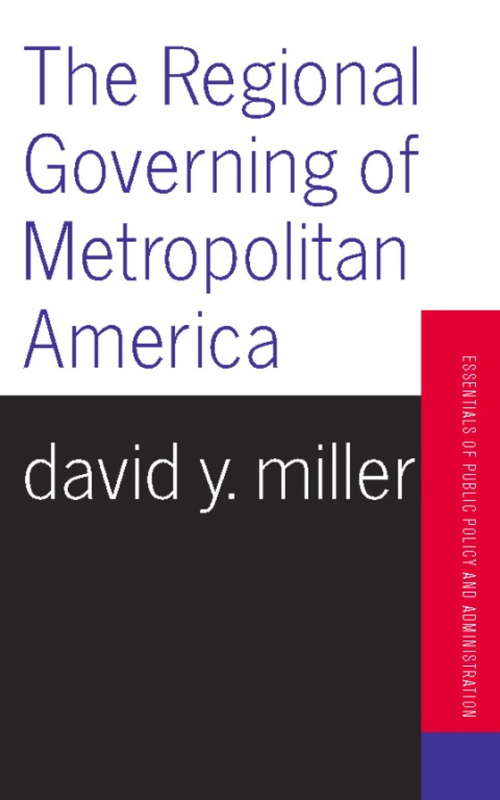The Regional Governing Of Metropolitan America
By:
Sign Up Now!
Already a Member? Log In
You must be logged into Bookshare to access this title.
Learn about membership options,
or view our freely available titles.
- Synopsis
- The book explores the regional governing of metropolitan America in a comprehensive and systematic fashion. It reviews the financial system of state and local government at the broadest possible level--the national level--and explores the relationships between the federal government, the 50 state governments, and the 86,000 local governments that constitute the United States system. It assesses and identifies the fundamentally different purposes, organizational designs, and powers of the several forms and types of local government--counties, municipalities (both cities and towns), and special districts. Although defined for statistical purposes by the federal government, metropolitan areas can be used to begin to understand how metropolitan regions in the United States are responding to the governance needs of their areas. The book compares and contrasts variations in the governing structures of metropolitan systems in the United States. It introduces the Metropolitan Power Diffusion Index (MPDI), a scale that measures the distribution of local government power for each metropolitan area in the United States. The scale also is used to assess changes in the diffusion of power over the later quarter of the 20th century. The book overviews the classic debate that has raged for the last 50 years over how metropolitan areas in the United States ought to be organized. One view, which I call the "region as organic whole", sees the metropolitan region as formally organized to explicitly serve the purposes of the region as it competes with other metropolitan regions throughout the world in pursuit of economic development. The second view, which I call the "polycentric region”, views the metropolitan region as a diverse set of personal choices in which citizens choose to reside in places that match their personal preferences. Global competitiveness results from creating an environment that encourages private enterprise and entrepreneurship. The book explores, in detail, cooperative strategies that have been developed to govern the metropolitan areas of the United States. It identifies and presents four types of approaches. Those types are: coordinating regionalism; administrative regionalism; fiscal regionalism; and structural regionalism. Each of these strategies can be found to one degree or another in each of the metropolitan regions in the United States. Finally, the book explores problems or issues that arise as a result of the structuring of government systems in metropolitan areas. It pays particular attention to the issues of regional economic performance, racial segregation and fiscal equity between local government jurisdictions.
- Copyright:
- 2002
Book Details
- Book Quality:
- Publisher Quality
- ISBN-13:
- 9780813345697
- Related ISBNs:
- 9780813345697
- Publisher:
- Perseus
- Date of Addition:
- 04/04/17
- Copyrighted By:
- Westview Press, A Member of the Perseus Books Group
- Adult content:
- No
- Language:
- English
- Has Image Descriptions:
- No
- Categories:
- Nonfiction, Politics and Government
- Submitted By:
- Bookshare Staff
- Usage Restrictions:
- This is a copyrighted book.
